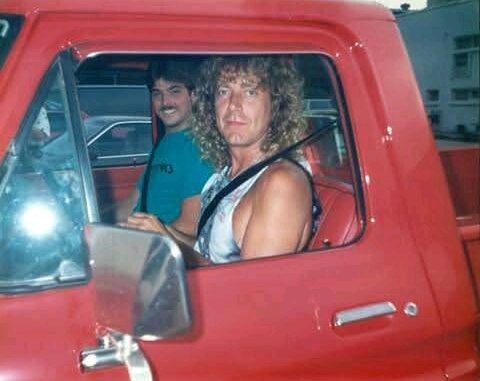
Robert Plant, with his signature bluesy wail and poetic soul, has long possessed the uncanny ability to transform the ordinary into the extraordinary. Whether singing of ancient battles, forbidden love, or the cry of a restless heart, Plant’s voice carries the weight of myth and the intimacy of a whispered secret. Give him a pickup truck, and chances are, he’d turn that steel beast into a mystical chariot of love and longing.
It’s easy to imagine Plant stepping out of a dusty two-lane highway scene, hair wild in the wind, boots caked in road dust, and a melody dancing on his tongue. In his hands, a simple vehicle becomes a symbol of escape, desire, and transcendence. With his lyrical flair, the dented fender tells a story of heartbreak; the backseat, a memory of a moonlit kiss; the rumble of the engine, a heartbeat racing toward some far-off destiny. He wouldn’t just sing about the truck—he’d elevate it into legend.
His voice, always a tightrope between anguish and ecstasy, would wrap around the metaphors like vines. The windshield might become “a window into yesterday’s dreams,” the gearshift “a lever of fate,” and the road ahead “a ribbon of sorrow wrapped in silver hope.” Under Plant’s spell, even a flat tire could become a metaphor for love lost and journeys interrupted.
Throughout his career—from the thunderous days of Led Zeppelin to the more introspective solo work and collaborations—Plant has been less a rock star and more a wandering troubadour. He’s drawn from blues, folk, Middle Eastern sounds, and American roots music, weaving these threads into stories that feel both timeless and deeply personal. That ability to find the sacred in the simple makes the idea of him singing about a truck not only plausible but oddly perfect.
Because for Robert Plant, nothing is too mundane to be made magical. That pickup truck, idling under a dying sun, wouldn’t be just a vehicle. It’d be a vessel of memory, a home for broken songs, a ride toward something unseen. And in that weathered cab, beneath the echo of his voice, you might just believe that love—and maybe even redemption—is only a turn of the key away.
Leave a Reply